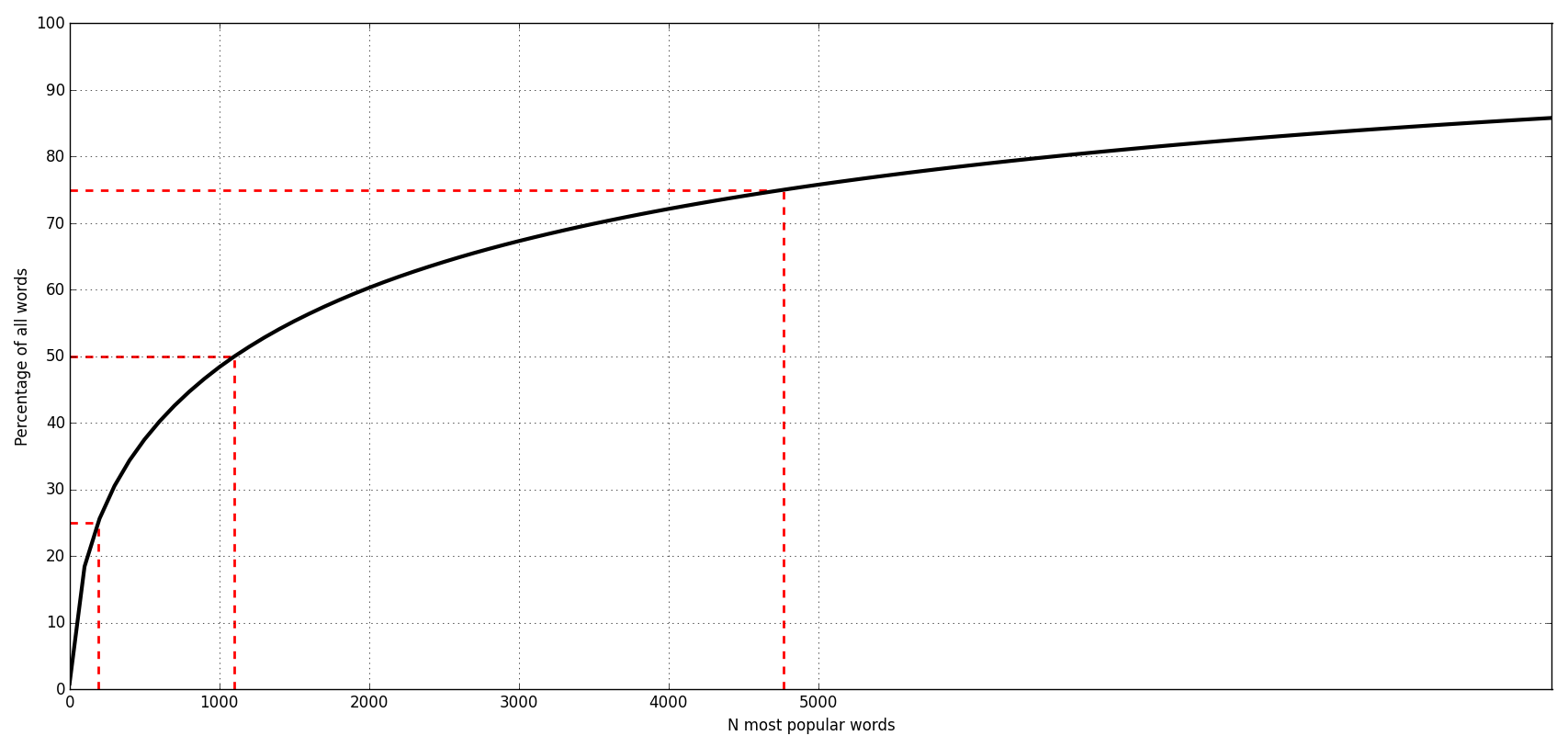Words nobody wants for websites
There are over 130 million .com and .net domain names. Is every single English word being used?
Curious, I hatched a plan and found the answer: not at all.
By my reckoning, only around 64% of all recognisable English are actually in use. What’s more, the most popular words (online, group, design, etc.) are incredibly common. In fact, just over 1,000 English words account for half of all words that appear in registered .com and .net domains.
The pool of rarely-used words is very large indeed!

To find out what this pool contains, I decided to take a list of 130 million domains and split every single one back into distinct words. For example, buycheapcars.com splits into three words: buy cheap cars. The domain name dropbox.com becomes drop box. I would then counted how many times each individual word appeared.
This methodology is good, I reasoned, because it prevents common substrings from being counted too frequently and making the counts biased. For example, sandinmyeyes.com would contribute just three words (sand, in, my, eyes). Subwords such as and, din and yey do not get counted at all. This is good because no straight-thinking person would think the domain owner intended to choose those words.
Splitting strings is not a trivial problem however. There could be many different ways to break up the domain into recognisable words; finding the “correct” way could require some advanced natural language processing. This is difficult to implement, computationally expensive and I wanted more immediate answers.
After some experiments, I found that simply splitting into the fewest words possible gave accurate-looking results. This also had the advantage of avoiding the comparison of all possible splits. I decided that any domain than could not be split cleanly would be discarded.
My computer churned through the 130 million domains in about four hours, only failing to split 18 million gobbledegook domains. A bit of cleaning up and I had a long list of 356,580,878 words (looks like domains contain an average of 2-3 words). The computer whirred for a few more minutes while it counted them and then was quiet.
So if you want to be the proud owner of domain name with a never-before-used word, what are your options? Here are a few ideas:
- pewful - enough to fill a church pew
- caufle - a gang of slaves
- oozoid - an individual formed from an egg that buds asexually
- spiccato - a technique of bowing in which the bow is made to bounce slightly from the string
- tawtie - matted or tangled (Scottish origin)
- acidology - the science of surgical appliances
- tappoon - a piece of wood/sheet metal fitted into a ditch to dam the water
- cenosity - filthiness
The shortest English word that did not appear in any domain was the five-letter whewl, which means to cry and complain.
Reading through a list of words that appeared only once, I saw seqed and learned that it is an ancient Egyptian unit of measurement. I smiled at winced, gobbed and plebby. I was surprised that meatiest is so underused.
Predictably, longer words are used less frequently than shorter words. That well-known 29-letter word floccinaucinihilipilification makes an appearance in just five domains. There are two other 29-letter words, each appearing only once: trinitrophenylmethylnitramine and cyclotrimethylenetrinitramine. These are both powerful explosives.
Armed with long lists of names, I checked to see if there were any which weren’t being used. Most are accounted for, but the women’s names Goldarina and Elladine are not taken. If you’re male, you’ve no hope of owning a unique domain name unless you happen to be named Giselbert, Reginauld or Cecilius.
However vast the Internet may be, there’s still a long way to go before it exhausts the English language.